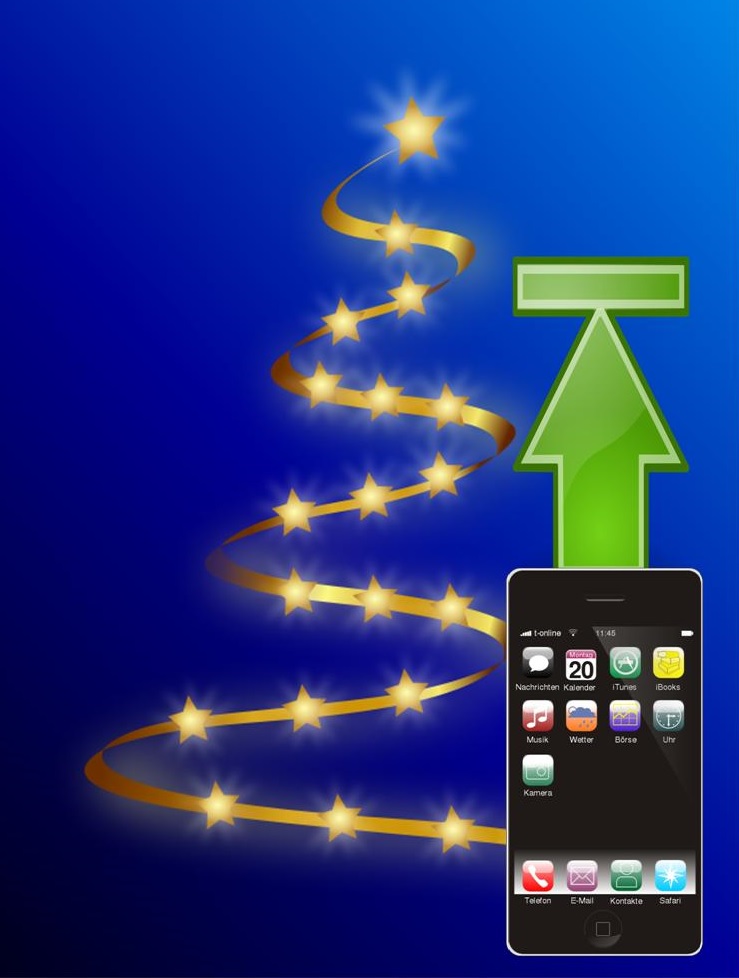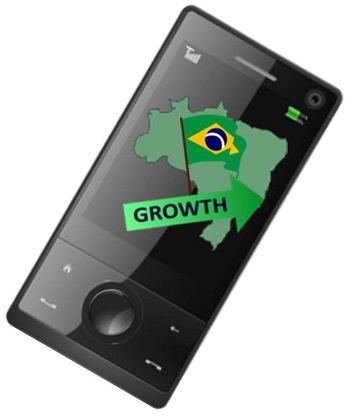After presents had been unwrapped from under the Christmas trees, 51 percent of smartphone activations were iOS.
The results of the holiday shopping season from 2014 are already starting to come in, and Flurry, a mobile technology analytics firm that examines the way in which device users interact with their apps, has produced their own perspective of the types of successes that were seen on Christmas Day.
The customers from that firm make up over 600,000 mobile apps, giving the company solid insight into the industry.
What it found was that on Christmas Day, over half of the new smartphones that were activated were from Apple, showing that the company still has a considerable place in the mobile technology industry. It also revealed that Christmas Day continues to be a time in which there are the highest number of activations and application installations of the entire year.
The Flurry blog revealed a number of details with regards to the activation of new mobile technology.
 One of the posters on Flurry’s blog, Jarah Euston, wrote that “Since the beginning of the mobile revolution, Christmas Day has seen the highest number of new device activations and app installs each year, and 2014 was no exception.”
One of the posters on Flurry’s blog, Jarah Euston, wrote that “Since the beginning of the mobile revolution, Christmas Day has seen the highest number of new device activations and app installs each year, and 2014 was no exception.”
Among the devices that were activated, Flurry recorded that 51 percent came from Apple mobile devices. Only 18 percent of the smartphone and tablet activations, on Christmas Day were from Samsung. Another 5.8 percent belonged to Microsoft, through its Nokia products, which held third place. Most of those were Lumia devices.
Euston added to the blog that in order to give some perspective to the difference between Apple and the other brand activations that were occurring in mobile technology devices on Christmas Day, for every one Samsung device that was activated on that day in 2014, Apple experienced nearly three (2.9) device activations. It was also pointed out that for every one Microsoft Lumia activation that occurred that day, Apple activated 8.8 from its own brand. While Apple had been seeing a struggle in keeping up the same growth that it had seen in previous years, it is clear that it remains the dominant player in this industry.
Sales almost doubled over the holiday shopping season in 2014, when compared to the year before.
According to E-bit, a Brazilian e-commerce consultancy, sales that were made over mobile commerce in the country, during the Christmas shopping season, almost doubled in 2014 when compared to the figures that were produced during that same span of time in 2013.
From November 15 through December 24, there was an increase of 96 percent in m-commerce purchases.
The purchases made over mobile commerce represented 8.8 percent of the total online sales that were experienced in the country. Comparatively, in 2013, smartphone and tablet based shopping made up only 4.5 percent of the total online sales, during the same period of time. When it came to revenue, m-commerce also made up 8.8 percent of the total during the holiday shopping period. This represented an increase of 82 percent over the figure generated by the firm in 2013.
A considerable part of the growth in Brazil’s mobile commerce figures were the result of Black Friday’s sales.
 E-bit reported that on that one day alone, there was a growth of 609 percent over m-commerce, when compared to Black Friday in 2013. The director of the firm, Pedro Guasti, said that “The share of mobile devices in virtual shopping is already nearing 9%. New entrants – those with no Internet access, as well as those with access from computers – are now migrating to smartphones and tablets”
E-bit reported that on that one day alone, there was a growth of 609 percent over m-commerce, when compared to Black Friday in 2013. The director of the firm, Pedro Guasti, said that “The share of mobile devices in virtual shopping is already nearing 9%. New entrants – those with no Internet access, as well as those with access from computers – are now migrating to smartphones and tablets”
Among the main drivers of the use of mobile devices for shopping purposes has been their rapid and growing penetration throughout the country. As more consumers own smartphones and tablets, it has caused the amount of marketing and selling targeting consumers using those gadgets to rise considerably. This was made clear, recently, by the panel at the São Paulo based Mobile+ Forum.
Equally, the instability of the broadband connections in Brazil have the potential to frustrate possible customers and have, according to the forum’s panelists, led shoppers to abandon their shopping carts before their transactions are complete. This will clearly be an important hurdle for mobile commerce to overcome if it is to continue it staggering growth rate in the country.
 One of the posters on Flurry’s blog, Jarah Euston, wrote that “Since the beginning of the mobile revolution, Christmas Day has seen the highest number of new device activations and app installs each year, and 2014 was no exception.”
One of the posters on Flurry’s blog, Jarah Euston, wrote that “Since the beginning of the mobile revolution, Christmas Day has seen the highest number of new device activations and app installs each year, and 2014 was no exception.”
 E-bit reported that on that one day alone, there was a growth of 609 percent over m-commerce, when compared to Black Friday in 2013. The director of the firm, Pedro Guasti, said that “The share of
E-bit reported that on that one day alone, there was a growth of 609 percent over m-commerce, when compared to Black Friday in 2013. The director of the firm, Pedro Guasti, said that “The share of 